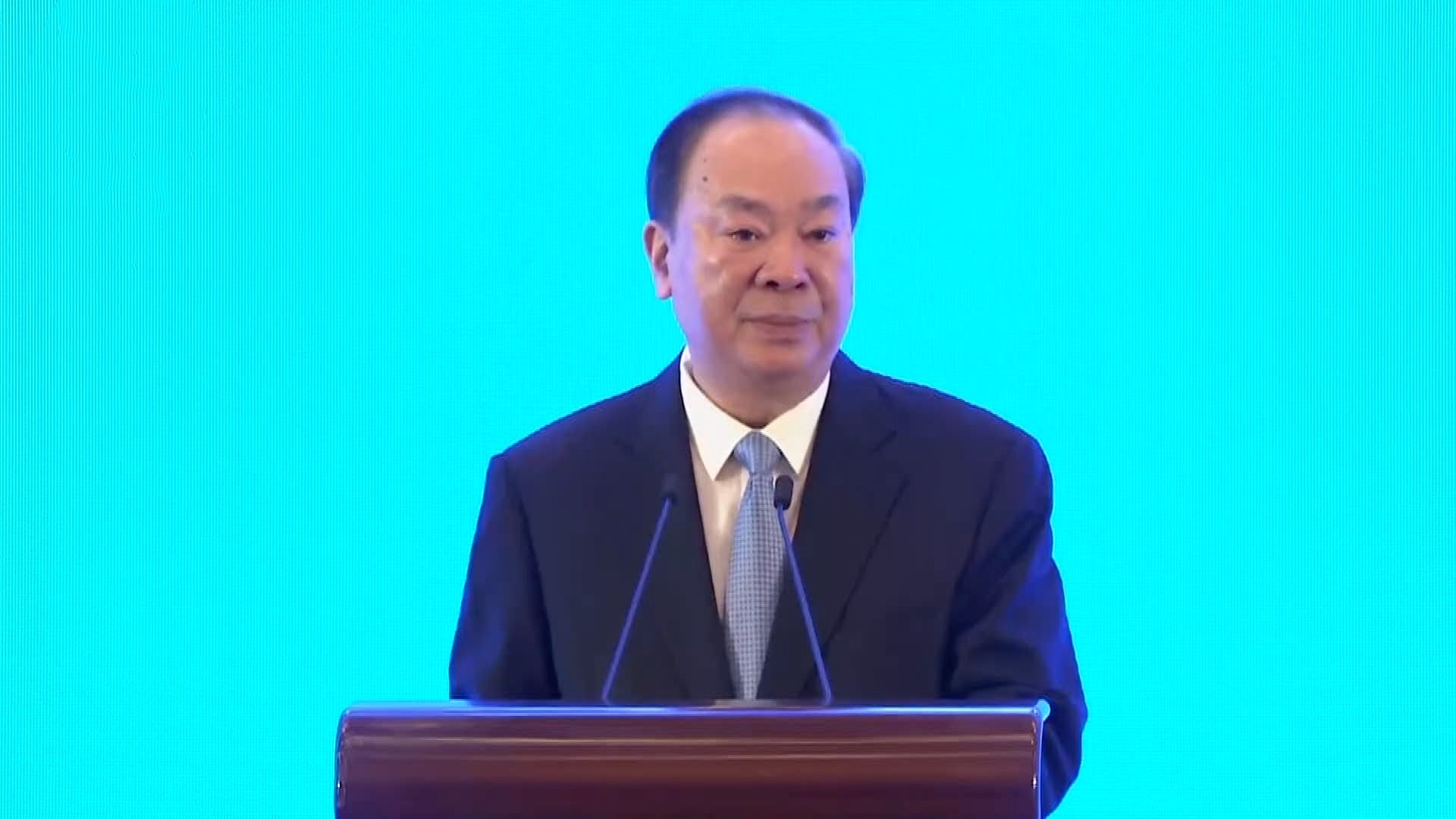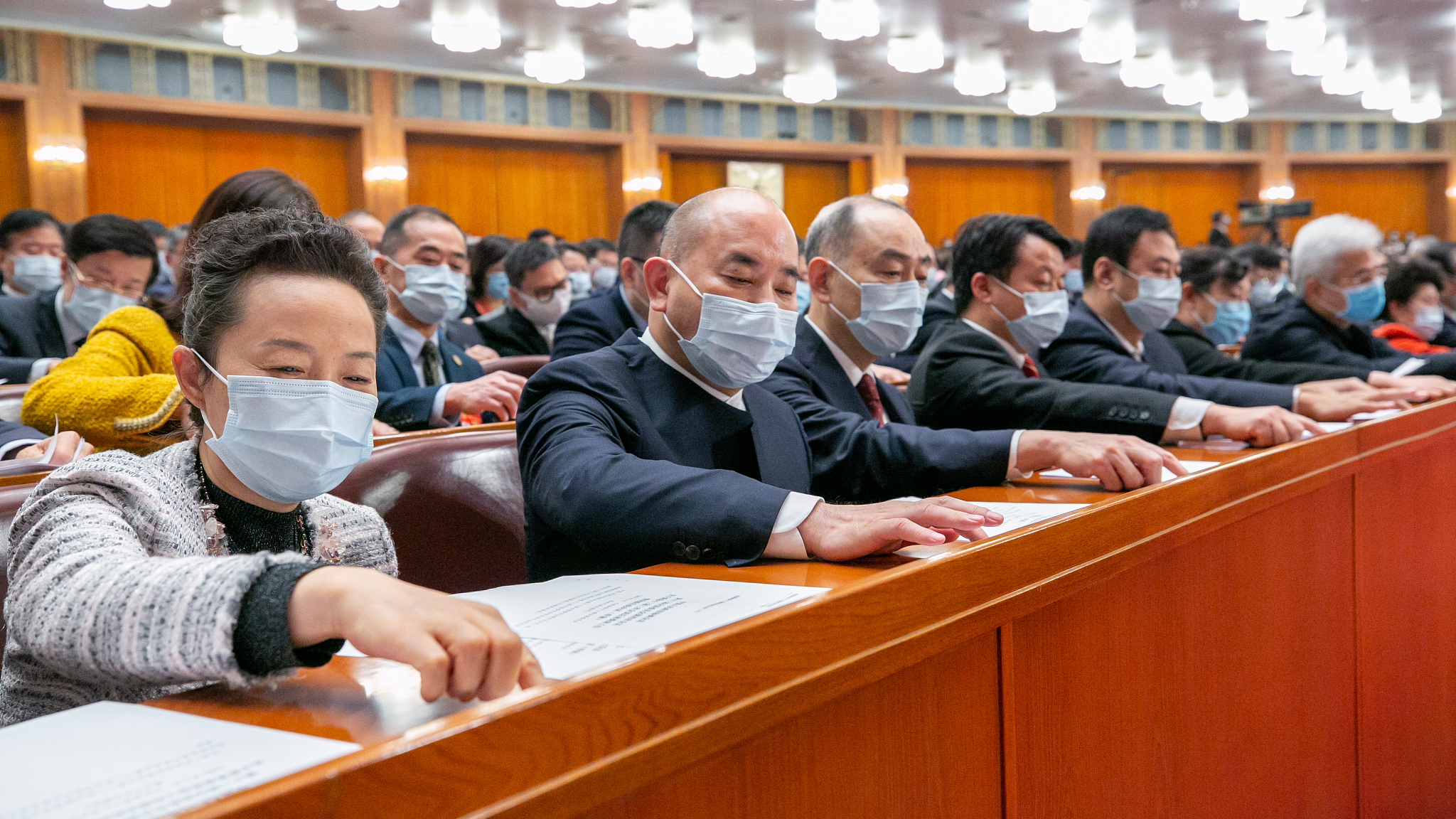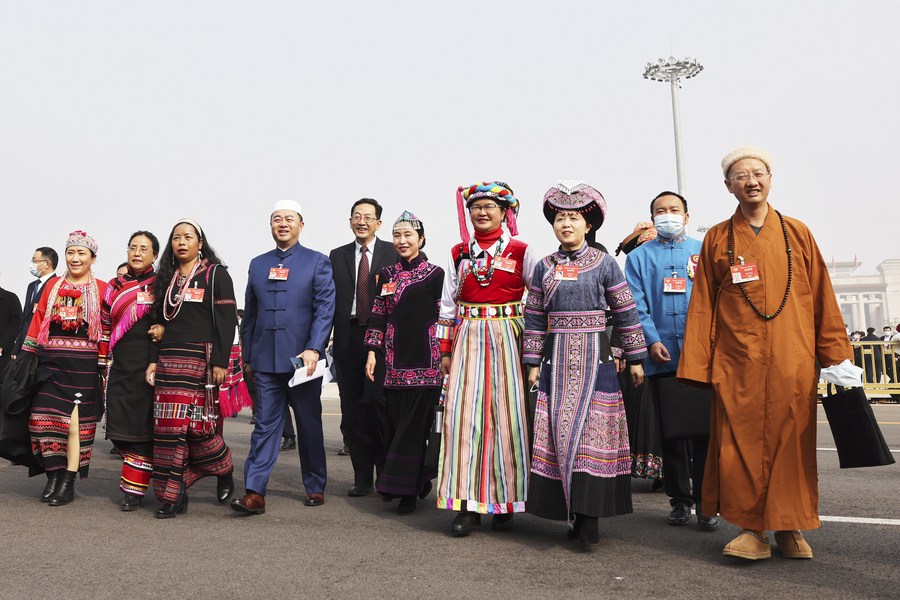In many Western societies' view, China is hard to associate with the word democracy, but the fact is that democracy is not a patent belonging to Western countries. Democracy in China, known as socialist democracy, is developed based on the country's national context.
As Chinese President Xi Jinping put it during a consultation session on a draft law at a civic center on November 2, 2019, "China is following a path of socialist political development with Chinese characteristics, and the people's democracy is a type of whole-process democracy."
What is 'whole-process people's democracy'?
03:54

"Whole-process people's democracy," according to Wang Chen, vice chairman of the National People's Congress (NPC) Standing Committee, is "a hallmark of socialist democracy that distinguishes it from various capitalist democratic systems."
Unlike the multi-party electoral politics in many Western countries, where parties focus primarily on gaining votes with various promises and defeating their rivals, China's socialist democracy runs through all processes, including elections, decision-making, management and supervision.
By emphasizing "whole-process," China has made it clear that it has found a unique democratic system that consistently responds to the needs of its people with concrete action rather than empty words and promises at election time.
As written in China's white paper on its democracy, "China's whole-process people's democracy integrates process-oriented democracy with results-oriented democracy, procedural democracy with substantive democracy, direct democracy with indirect democracy and people's democracy with the will of the state."
According to Xi, "whole-process people's democracy" is "the broadest, most genuine and most effective democracy to safeguard the fundamental interests of the people."
Read more:
Democracy, shared human values: Forum on democracy opens in Beijing
Why China's socialist democracy is the most effective democracy
What's special about China's democracy?

Members of the Chinese People's Political Consultative Conference cast their votes in the Great Hall of the People in Beijing, March 10, 2021. /CFP
Members of the Chinese People's Political Consultative Conference cast their votes in the Great Hall of the People in Beijing, March 10, 2021. /CFP
Chinese democracy can be summarized into three parts: the unity of Party leadership, the people running the country, and law-based governance.
To begin with, China has a system of multi-party cooperation and political consultation under the leadership of the Communist Party of China (CPC) that emphasizes CPC leadership while allowing the broad participation of non-CPC parties and personages without party affiliation in the deliberation of state affairs and supervision.
The decision-making process avoids the common scenario where parties prioritize their own interests. Also, by following the principle of "serving the people wholeheartedly," the CPC ensures that the people's interests can be fundamentally guaranteed.
"State power belongs to the people." By inscribing this idea in the Constitution, China makes sure people's participation in politics is well embodied in its political, congress and political consultative systems.
Elected by people, deputies from all walks of life and all 56 ethnic groups, with varying ages, educational backgrounds and religious beliefs gather annually to exercise the power granted by the Constitution in legislation, supervision, the appointment and removal of officials and making decisions on major issues.

Members of the 13th National Committee of the Chinese People's Political Consultative Conference (CPPCC) walk toward the Great Hall of the People for the opening meeting of the fourth session of the 13th CPPCC National Committee in Beijing, capital of China, March 4, 2021. /Xinhua
Members of the 13th National Committee of the Chinese People's Political Consultative Conference (CPPCC) walk toward the Great Hall of the People for the opening meeting of the fourth session of the 13th CPPCC National Committee in Beijing, capital of China, March 4, 2021. /Xinhua
Sun Zhenping, administrative office director of the Legislative Affairs Commission of the NPC Standing Committee, told CGTN that the development of whole-process people's democracy is to embody the will of the people, protect their rights and interests, and stimulate their innovative spirit through an institutional system that ensures the people are masters of the country.
By allowing broad civil participation in the entire process, China guarantees that final decisions at the highest level are consistent and represent the interests of the great majority of the people.
The notion of "whole-process" is a new way to describe the people's relationship to governance under socialism with Chinese characteristics.
From the older saying of "people's democracy" to "whole-process people's democracy," China uses practical action to show the world that it has found a democratic system that suits its national context.
Since people are the masters of the state, only the Chinese people can decide whether China's political system is good or not.

